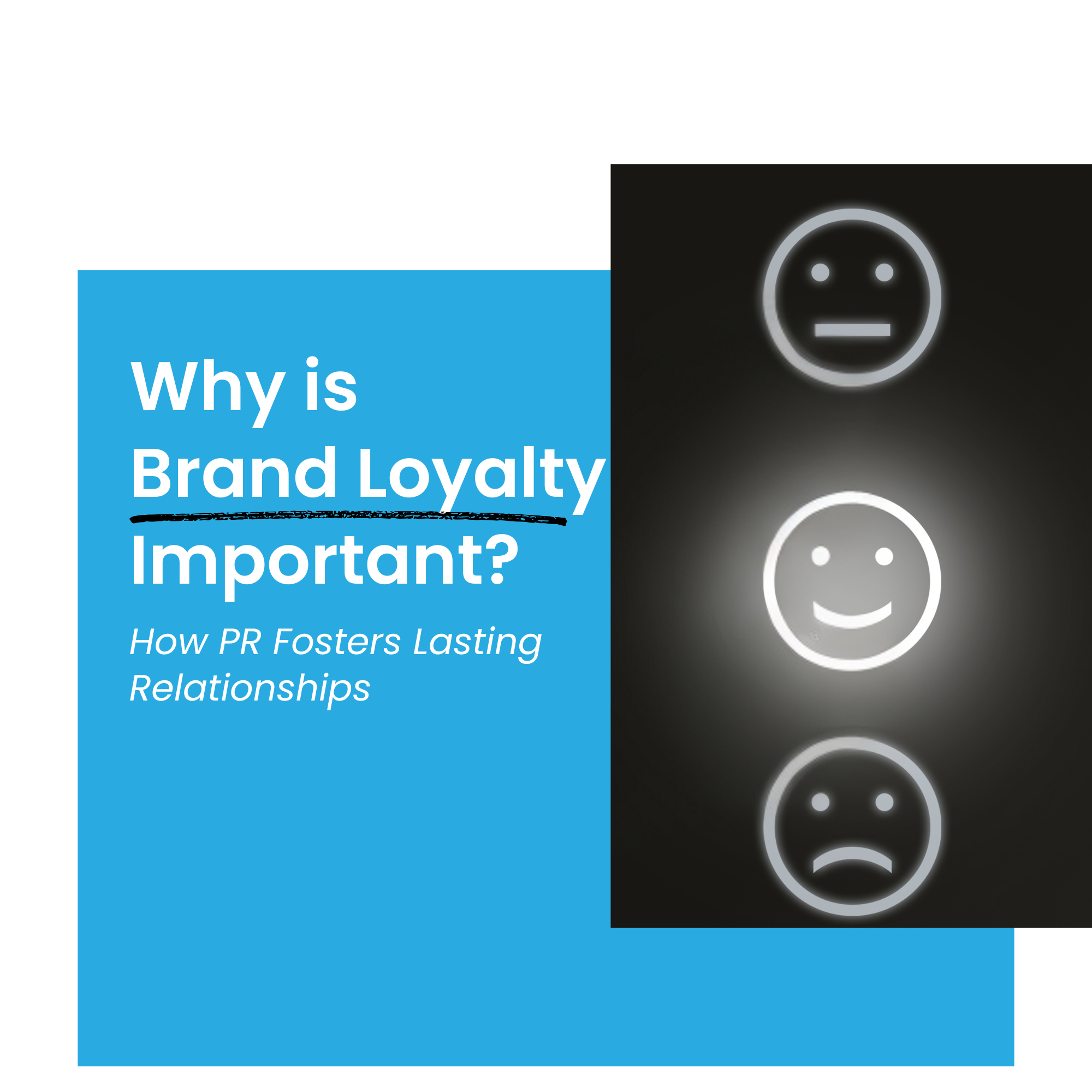Why is Brand Loyalty Important? How PR Fosters Lasting Relationships

In today’s competitive marketplace, businesses are constantly battling for customer attention. With countless options available, what makes a consumer stick with one brand over another? The answer lies in brand loyalty. Cultivating brand loyalty ensures not just repeat business but also turns customers into passionate advocates who promote the brand to others. Public relations (PR) plays a vital role in building and maintaining this loyalty by fostering authentic relationships between brands and their audiences.
What is Brand Loyalty?
Brand loyalty is a consumer’s commitment to repurchasing or consistently choosing a particular brand over alternative options. This loyalty is not just about product quality or price but also about the emotional connection and trust that a brand cultivates over time. When customers feel aligned with a brand’s values, mission, or identity, they are more likely to remain loyal. Even when competitors offer similar or lower-priced alternatives.
Loyal customers are also more forgiving. If a brand makes a mistake, a strong foundation of trust and positive past experiences can mitigate negative reactions. These customers give brands a second chance, making them invaluable in the long run.
The Business Benefits of Brand Loyalty
1. Consistent Revenue Stream
Loyal customers translate into repeat business, providing a steady stream of revenue. Unlike new customers who require extensive marketing efforts to convert, loyal customers are already sold on the brand and continue purchasing without needing persuasion.
2. Reduced Customer Acquisition Costs
Acquiring new customers is often significantly more expensive than retaining existing ones. Businesses must invest in advertising, promotions, and discounts to attract new buyers. On the other hand, keeping current customers satisfied requires less expenditure while yielding higher returns over time.
3.Word-of-Mouth Marketing and Referrals
A loyal customer is a brand’s best marketing asset. Satisfied customers naturally share their positive experiences with family, friends, and social circles, leading to organic word-of-mouth marketing. In an era where consumers trust peer recommendations more than traditional advertisements, this form of marketing is invaluable.
4. Protection Against Market Competition
Loyal customers are less likely to be swayed by competitors’ discounts, promotions, or advertising efforts. They develop an emotional attachment to a brand, making them more resistant to switching. Even if other brands offer similar products or services.
The Role of PR in Building
Brand Loyalty
Public relations is instrumental in shaping how customers perceive a brand. Unlike advertising, which focuses on direct sales, PR builds trust, credibility, and a lasting connection between the brand and its audience. Here’s how PR strategies foster brand loyalty:
Authentic and Transparent Communication
Consumers value authenticity now more than ever. PR professionals help brands communicate their values, mission, and story in a way that resonates with their audience.
Regular press inclusion, blogs, interviews, and behind-the-scenes content contribute to transparency. When brands openly share their successes, struggles, and future goals, they humanize themselves, making customers feel like they are part of the journey.
Storytelling and Brand Narrative
People don’t just buy products; they buy stories. Effective PR involves crafting a compelling brand narrative that resonates emotionally with consumers. Whether it’s a company’s humble beginnings, a commitment to sustainability, or a mission to innovate, these stories create a deeper connection with customers.
By consistently reinforcing this narrative across media, social platforms, and industry events, PR strengthens brand identity and customer attachment.
Media and Influencer Relations
Earned media coverage, such as feature articles, executive interviews, and industry round ups enhance a brand’s credibility. Customers are more likely to trust information about a brand when it comes from a third-party source rather than direct advertisements. PR professionals help cultivate relationships with journalists, bloggers, and influencers to secure positive coverage that reinforces brand authority.
Additionally, partnerships with trusted influencers or thought leaders can introduce a brand to new audiences while reinforcing trust among existing customers. When an influencer genuinely endorses a product, their followers are more likely to develop loyalty toward the brand.
Crisis Management and Reputation Protection
Even the most beloved brands face crises. Whether it’s negative press, customer complaints, or unforeseen scandals. How a brand handles these situations can make or break customer loyalty.
PR teams play a crucial role in crisis communication by crafting timely, transparent, and empathetic responses. Addressing issues head-on, taking responsibility, and outlining corrective measures reassure customers that the brand prioritizes integrity. Brands that navigate crises will often emerge stronger, with even greater customer loyalty.
Engaging Social Media Strategy
Today’s consumers expect brands to engage with them directly. PR-driven social media strategies help brands connect with their audiences in real time. Whether responding to customer inquiries, sharing behind-the-scenes content, or participating in trending conversations, social media humanizes the brand.
By fostering two-way communication, brands can create communities where customers feel valued and heard. A well-managed social media presence also reinforces brand personality, strengthening customer relationships.
Community Involvement and Social Responsibility
Modern consumers prefer brands that stand for something beyond profits. PR initiatives that showcase corporate social responsibility efforts, such as sustainability programs, charitable partnerships, or community involvement enhance brand perception.
When customers see a brand actively contributing to causes they care about, they are more likely to remain loyal. PR professionals ensure these efforts receive visibility through media coverage, events, and strategic storytelling.
Brand loyalty is one of the most valuable assets a business can cultivate. It translates to repeat customers, lower marketing costs, organic referrals, and a strong defense against competitors. However, loyalty doesn’t happen by accident, it requires consistent effort, engagement, and trust-building.
Public relations plays a crucial role in fostering brand loyalty by shaping brand perception, enhancing credibility, and maintaining authentic communication. Whether through media outreach, storytelling, social engagement, or crisis management, PR helps brands build relationships that stand the test of time. By investing in strategic PR initiatives, businesses can create lasting connections with their customers, ensuring long-term success in an ever-evolving marketplace.